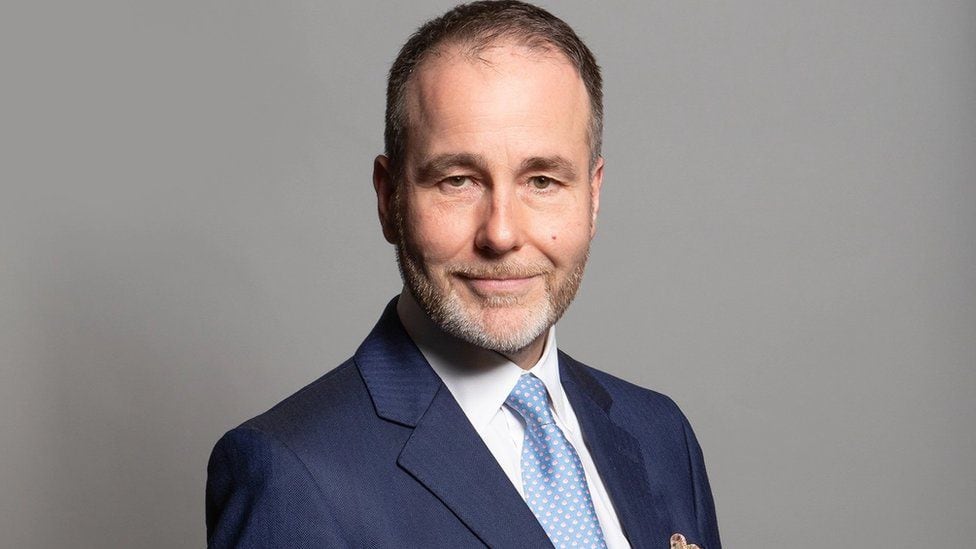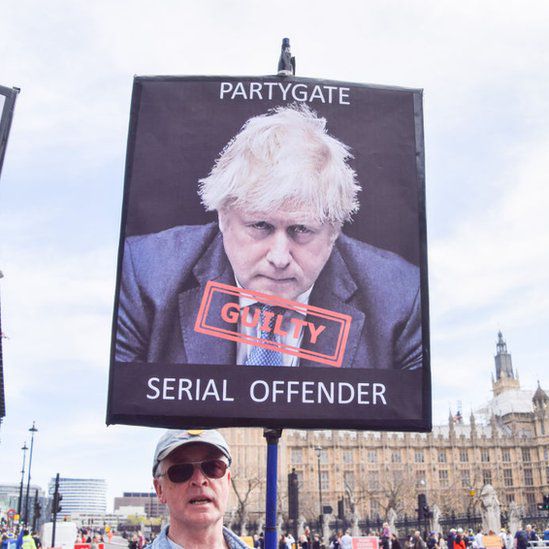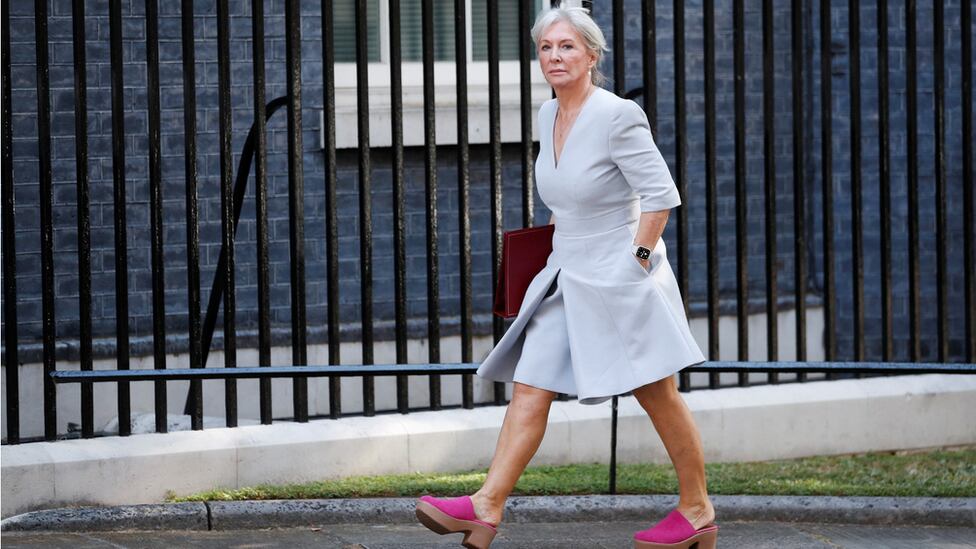Less than a month later, a new scandal.
The government of the Prime Minister of United Kingdom, Boris Johnsonwas shaken this Tuesday by a crisis of unforeseeable consequences, initiated by the sexual scandal in which he was involved Chris Pinchera conservative parliamentarian close to the premier.
LOOK: “The economy improved a little and I wanted to be with my family”: Venezuelan migrants who return to their country
The Finance Minister Rishi Sunak and Health Minister Sajid Javid they resigned within half an hour questioning Johnson’s competence to lead the country.
Sunak said that citizens expect the government to be run in an “appropriate, competent and serious” way; while Javid claimed that the government was not “acting in the national interest.”
Both resignations fueled expectations that the British government may soon fall.
On Wednesday morning, Minister for Children and Families Will Quince joined Sunak and Javid in sending a letter to Johnson announcing his resignation, after he told the media on Monday that he had been assured that the prime minister He was not aware of a series of allegations against Chris Pincher.
It was later found out that It was not true.
Shortly after the Treasury Secretary, John Glen, joined the series of resignations.
In less than 24 hours, nearly 20 officials have left their posts, including Attorney General Alex Chalk and Laura Trott, Parliamentary Secretary at the Department for Transport.
“After all the sleaze, after all the failure, it is clear that this Conservative government is collapsing”, said the leader of the Labor Party, Keir Starmer.
For his part, the head of the Liberal Democratic Party, Ed Davey, described Johnson’s term as a “government of chaos that has failed the country” and ordered him to resign.
These calls come less than a month after the prime minister faced a motion of no confidence in which 41% of legislators from his own party voted against him.
That attempt to remove him took place after photos and evidence of meetings and celebrations at the seat of government came to light while the rest of the country was confined by the restrictions imposed by the Johnson government itself during the covid-pandemic. 19.
BBC Mundo answers the key questions about this new crisis that threatens to collapse the Johnson government.
1. What is the origin of the crisis?
On June 30, the British newspaper The Sun published information according to which the then deputy head of the Conservative Party caucus in Parliament, Chris Pincher had groped two men in a private club in London.
Pincher, who had been appointed to that position by Johnson in February of this year in the midst of an Executive reshuffle, resigned immediately.
Within days, the British media published information about at least six other cases of alleged sexual misconduct by Pincher that have occurred in recent years.
Pincher, who was suspended by the Conservative Party, has apologized and said that cooperate fully with investigations into your conduct and that you are looking for “professional medical support”.
2. How is Boris Johnson involved?
Although the British prime minister is not the one who has engaged in sexual misconduct, the Pincher scandal puts him in a difficult position because his good judgment is being questioned as well as the transparency with which the government has handled the case.

On July 1, the government office told the press that Johnson was unaware there were any allegations against Pincher prior to his appointment.. The government spokesman said the prime minister was not aware of “specific allegations” about Pincher.
That was the same line that several members of the cabinet maintained in the following days.
However, on July 4, the president’s spokesman said that Johnson was aware of “allegations that were resolved or did not progress to the grievance phase” and that it was not considered appropriate to stop Pincher’s appointment due to “unsubstantiated allegations.” “.
That same afternoon, however, the BBC revealed that Johnson had been briefed on a formal complaint about Pincher’s “inappropriate behavior”, while he worked at the Foreign Ministry between 2019-2020. This complaint led to a disciplinary process that confirmed that inappropriate behavior did occur.
Later in an interview with the BBC, Johnson said: “There was a complaint that was brought to my attention specifically…it was a long time ago and it was brought to me orally…but that’s no excuse, I should have acted on it.” .
The prime minister described as “a mistake” to have appointed Pincher, whom he said had behaved “very, very badly”, for which apologized to those affected.
3. Why do they question the prime minister?
“This is all about one thing: the truth,” says BBC Politics editor Chris Mason, analyzing the ongoing crisis in the British government.

“Regardless of the tidal wave of details and accusations, it all comes down to whether people can believe what the number 10 says. [como se llama coloquialmente al Ejecutivo británico]”, he adds.
And it is that the Executive’s response to the Pincher scandal has been progressively changing as other elements have emerged, as happened during the so-called “Partygate”, the case about the parties held at the seat of government during the coronavirus confinement, in which it was finally proven that even Johnson had attended some of these social gatherings.
“The questions are about what Boris Johnson knew and when he knew it. And the answers keep changing, often in response to uncomfortable facts that show his previous defense was rubbish, or at least not as candid as it could have been.” Manson points out.
4. What can happen now?
In theory, after having survived the motion of censure against him just a month ago, Boris Johnson is protected from another similar initiative for a year.
This is because it is established by the current rules of the 1922 Committee, the group that groups the common legislators of the British Conservative Party. These indicate that this is the period that must elapse before the party leader can be questioned again.
However, Johnson’s critics want to take advantage of the call to renew the leadership of that committee to try to take control of it and change that rule to make a new motion of censure possible.
Conservative lawmaker Andrew Bridgen, one of Johnson’s most critical, told Sky News that he hopes the new board is in favor of changing that rule so that this limitation can be lifted before the summer break.
Asked by the BBC about the feasibility of this change in the regulations, Sir Graham Brady, current head of the 1922 Committee, said that “technically it is possible”.
In the vote that took place a month ago, Johnson got 211 votes in favor and 148 against.
Nevertheless, his political situation has deteriorated further in recent days with the Pincher scandal, first, and now with the resignations in his government, which are not limited to these two ministers but extend further to include other officials such as Attorney General Alex Chalk, who noted that the “confidence public opinion on Number 10’s ability to uphold the standards of sincerity expected of a British government has been irretrievably broken.
Another mechanism that could lead to Johnson’s departure is for a no-confidence vote to be called in Parliament, in which lawmakers from all parties can participate.
That initiative has already been proposed by the Liberal Democrats, but for it to prosper it would need to be presented by the Labor Party and the government would have to agree that it be included in the Legislative agenda.

It is also possible that resignations will continue to occur within the cabinet, increasing political pressure on Johnson to resign. For now, however, there are several ministers who have already ratified their trust in Johnson. These include the Minister for Culture, Nadine Dorries; the Home Secretary, Priti Patel, and the Minister for Brexit Opportunities, Jacob Rees-Mogg.
Finally, there is the possibility that the British president will manage to weather the adverse storm as he has done in previous crises that his government has faced, although analysts agree that time is running out.
_________________________________
Johnson loyalists face an awkward challenge
Analysis by Ione Wells, Westminster Correspondent, BBC News
Conservative MPs and ministers are fed up with not being told the truth and being made to look like fools on TV and radio as a result.
Will Quince, when he had to defend the government over the appointment of Chris Pincher, told the media that he received “categorical assurance” that the prime minister was not aware of any “serious and specific allegations” when he appointed Pincher.
This turned out not to be true.
The prime minister later admitted that he was aware of a formal complaint about Pincher when he was a minister at the Foreign Office in 2019.
Fifteen resigned on Wednesday, saying he “accepted and repeated assurances on Monday to the media that have now been found to be inaccurate.”
He was joined by junior minister Robin Walker and Laura Trott, previously the parliamentary private secretary for transport, who also said she would resign because confidence in politics had been lost.
Those who remain loyal to the prime minister now face an uncomfortable challenge.
They must defend why they feel it is acceptable that the Johnson administration ordered its ministers to say one thing, before changing their position days or even hours later.
Source: Elcomercio
I, Ronald Payne, am a journalist and author who dedicated his life to telling the stories that need to be said. I have over 7 years of experience as a reporter and editor, covering everything from politics to business to crime.

:quality(75)/cloudfront-us-east-1.images.arcpublishing.com/elcomercio/PVNN72XXUJGKXBE3TI2YI6QHQY.jpg)





